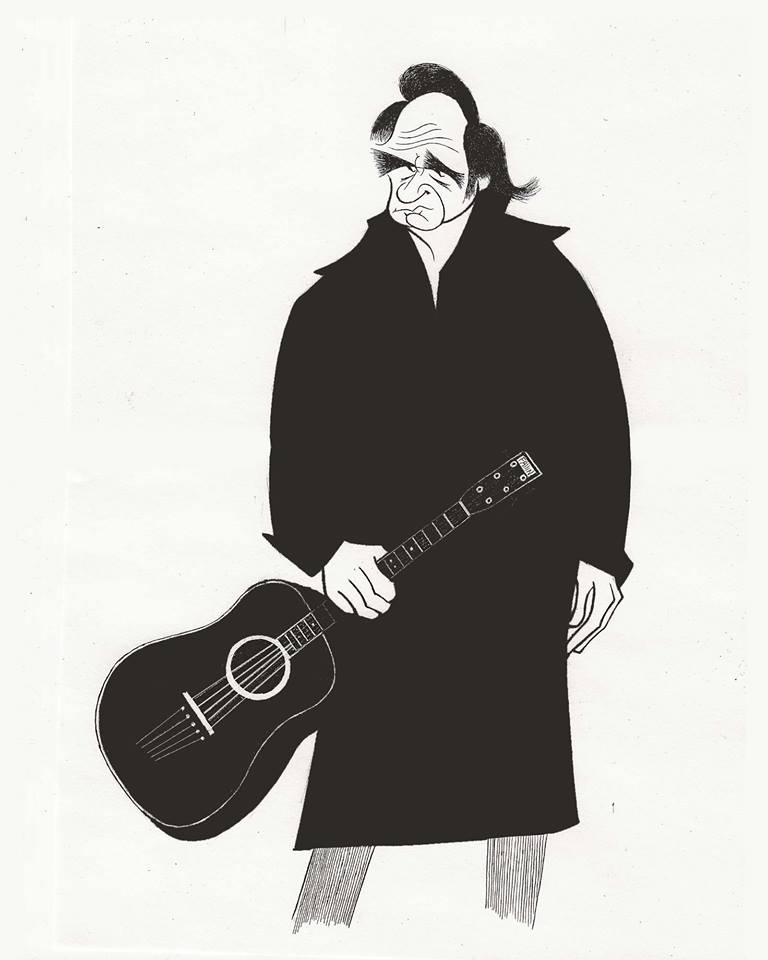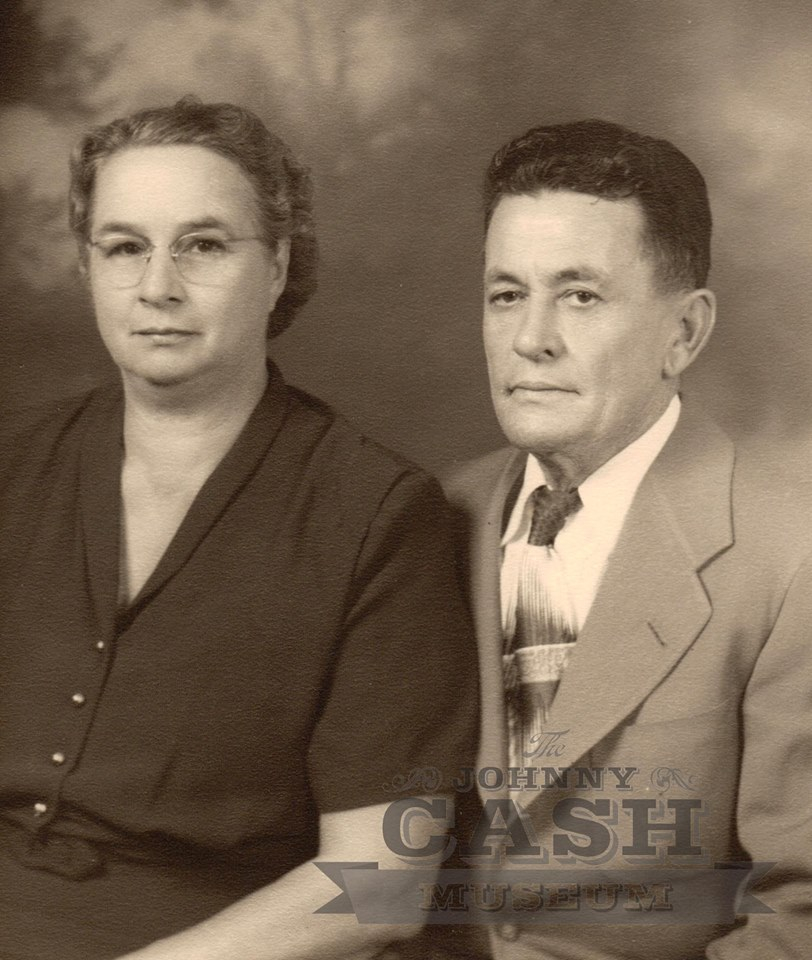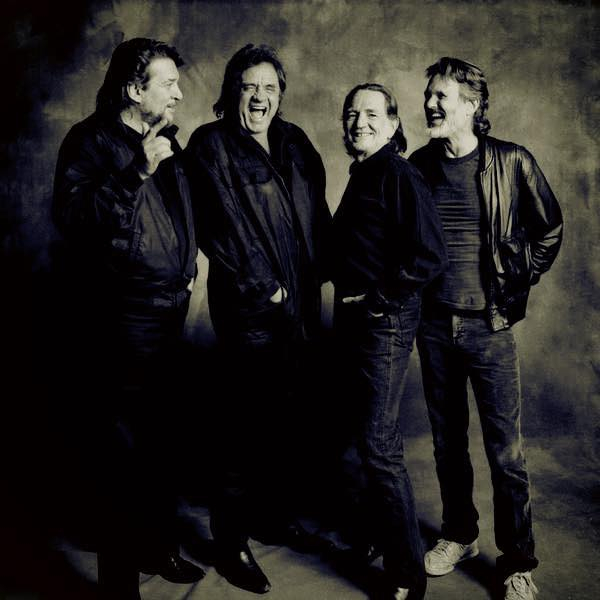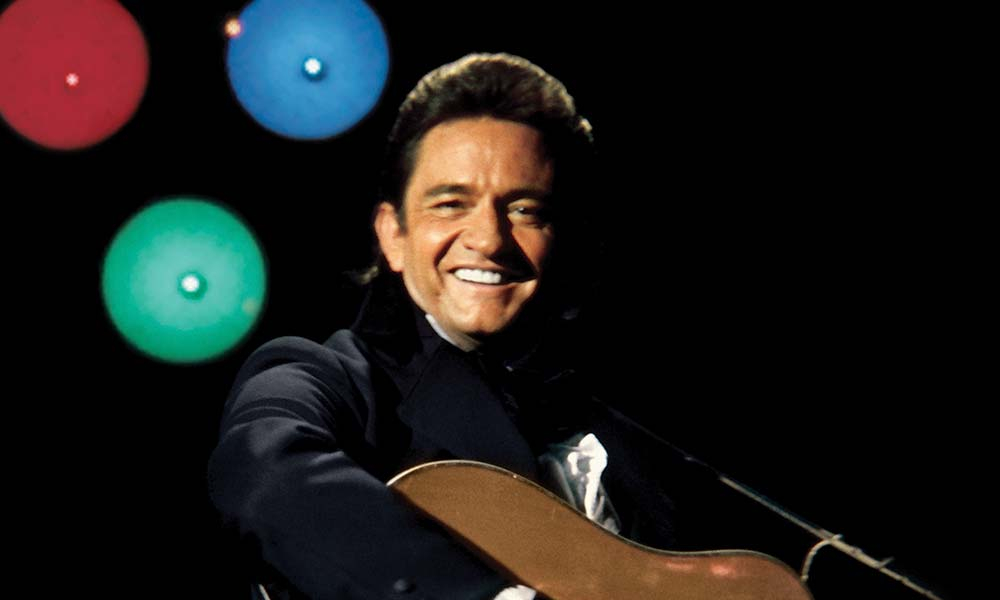Johnny Cash, Country Music Bedrock, Dies at 71
SEPT. 13, 2003
Johnny Cash, whose bass-baritone was the vocal bedrock of American country music for more than four decades, died yesterday in Nashville. He was 71 and lived nearby in Hendersonville, Tenn. The cause was complications of diabetes, said Lou Robin, Mr. Cash's manager. Known as the Man in Black, both for his voice, which projected the fateful gravity of a country patriarch, and for his signature look, which suggested a cowboy undertaker, Mr. Cash was one of the few performers who outlasted trends to become a mythical figure rediscovered by each new generation. Beginning in the mid-1950's, when he made his first records for the Sun label, Mr. Cash forged a lean, hard-bitten country-folk music that at its most powerful seemed to erase the lines between singing, storytelling and grueling life experience. Born in poverty in Arkansas at the height of the Depression, he was country music's foremost poet of the working poor. His stripped-down songs described the lives of coal miners and sharecroppers, convicts and cowboys, railroad workers and laborers.
His influence extended far beyond the sphere of country music; along with Elvis Presley, Jerry Lee Lewis and Carl Perkins, his peers on Sun Records in the mid-1950's, he is considered a pioneer of rock 'n' roll. In 1992, 12 years after his election to the Country Music Hall of Fame, he was elected to the Rock and Roll Hall of Fame, and he remains the only performer besides Presley to have been inducted into both. Rockers embraced him after he and Bob Dylan recorded a duet, ''Girl From the North Country,'' on Mr. Dylan's ''Nashville Skyline'' album. Recently, Mr. Cash's version of the Nine Inch Nails song ''Hurt'' won six nominations at the MTV Video Music Awards. (The video won for best cinematography.) Only his hospitalization for a stomach ailment prevented him from attending the awards ceremony.
In May, his wife, June Carter Cash, whom he married in 1968 and whom he credited with helping him stay off drugs, died. The marriage established them as the unofficial First Family of country music. Mr. Cash won 11 Grammys in all, including a lifetime achievement award in 1999. The most recent was this year, for best country male vocal performance for the song ''Give My Love to Rose.'' Mr. Cash exerted an incalculable influence on music. As Rich Kienzle observed in Country Music magazine, he ''strengthened the bonds between folk and country music so that both sides saw their similarities as well as their differences.''
''He helped to liberalize Nashville,'' Mr. Kienzle wrote, ''so that it could accept the unconventional and the controversial, and he did as much as anyone to make the 'outlaw' phenomenon possible.'' Long before the term ''concept album'' was coined, Mr. Cash created thematic albums like ''Ride This Train'' (1960), ''Blood, Sweat and Tears'' (1963), ''Bitter Tears'' (1964) and ''Johnny Cash Sings Ballads of the True West'' (1965).
The sound of the slapped bass on his first major hit, ''I Walk the Line,'' and the hard-edged boom-chigga beat of the early hits he recorded with his trio, the Tennessee Three, were primal rock 'n' roll sounds. And his deep vocals, with their crags and quavers, demonstrated that a voice need not be pretty to be eloquent.
Mr. Cash would compose a song in his head and play it over and over until he was satisfied enough to put it on tape. He would often write lyrics while traveling from one engagement to another. Recent tributes to him by younger musicians include a multi-artist anthology of Cash songs, ''Till Things Get Brighter,'' and recordings of his songs by Stevie Nicks and the Beat Farmers. He was a guest soloist on U2's 1993 album, ''Zooropa.'' Mr. Cash's 1954 song about violent outcasts, ''Folsom Prison Blues,'' has even been described as a forerunner of gangsta rap. The song, which he wrote shortly after he left the Air Force, captured an essential ingredient of his mystique, the image of the reformed outlaw: I hear that train a-comin' Comin' round the bend. I ain't seen the sunshine Since I don't know when.
Well, I'm stuck in Folsom Prison And time keeps draggin' on.
With its bare-bones realism, the song distilled the sepulchral grimness that often seemed to engulf Mr. Cash, who fought a long battle against addiction to drugs, particularly amphetamines. ''There is that beast there in me,'' he said in an interview with Neil Strauss in The New York Times in 1994. ''And I got to keep him caged, or he'll eat me alive.'' But as Mr. Strauss observed, the sinners that Mr. Cash sang about, unlike those in most gangsta raps, were usually plagued by guilt and seeking God's forgiveness. His tales may have been grim, but they were not nihilistic. Mr. Cash's appeal transcended boundaries of class, generation and geography. Describing a characteristic performance, Paul Hemphill, a country music historian, once wrote: ''Cash, wearing all black, Cash with human suffering in his deep eyes and on his tortured face, Cash, insolent and lashing out from the stage, Cash, in a black swallowtail coat and striped morning pants like an elegant undertaker, Cash swinging his guitar around, pointing it at his listeners as though it were a tommy gun, all of these things captured the whole world.'' In a career in which he recorded more than 1,500 songs, Mr. Cash applied his gritty voice to almost every kind of material. Blues, hymns, cowboy songs, American Indian ballads, railroad songs, children's songs, spoken narratives, patriotic songs, love songs and novelties were all delivered in a near-monotone that was the vocal equivalent of a monument hammered out of stone. In the repertory of songs he wrote and sang, ''characters face unforgiving elements and indifferent fate; their faith and virtue will not necessarily be rewarded in this world,'' Jon Pareles, chief pop music critic for The Times, wrote in 1994. ''Even love songs, like 'I Walk the Line' and 'Ring of Fire,' are about the dangers of temptation and the singer's stubborn resolve in fighting it off.''
Mr. Cash's stoical singing about loneliness and death, love and humble Christian faith reflected the barren terrain of his upbringing. He was born in a shack on Feb. 26, 1932, in Kingsland, Ark., to Ray Cash and Carrie Rivers Cash, cotton farmers whose livelihood was destroyed by the Depression. They named him J. R; it is not clear how John evolved, and the R is a mystery. But it was the legendary record producer Sam Phillips of Sun Records who later gave him the name Johnny. The Depression forced Ray Cash to become a hobo laborer, picking cotton, chopping wood and doing railroad chores until he was able to take advantage of a New Deal resettlement program for impoverished farmers. When J. R. was 3, the family moved to 20 acres and a five-room house in Dyess Colony, in northeastern Arkansas. There he spent the next 15 years, working in the fields and learning the plain-spoken stories of the sharecroppers. He was close to his three brothers and two sisters -- Roy, Jack, Tommy, Reba and Joann -- and was deeply influenced by his mother's devotion to the Pentecostal Church of God. Drawn to country music on the radio, the young J. R. Cash listened to the Grand Ole Opry and particularly admired the music of Ernest Tubb, Roy Acuff, Hank Williams and the Carter Family. While overseas, Mr. Cash began writing songs, including ''Hey Porter,'' which would later be one side of his first single. Returning to the United States in 1954, he married Vivian Liberto, whom he had met while in basic training in Texas, and they moved to Memphis. There he became a door-to-door appliance salesman and for a while enrolled in a course in radio announcing. He was determined to have a career in music.
By 1969, Mr. Cash was the host of his own network television show, appearing over the next two years with stars like Mr. Dylan, Glen Campbell, Ray Charles and the Carter Family. Also in 1969, his novelty song ''A Boy Named Sue,'' written by Shel Silverstein, became his biggest pop hit.
Following ''I Walk the Line'' and ''There You Go,'' Mr. Cash scored several more No. 1 country hits: ''Ballad of a Teenage Queen,'' ''I Guess Things Happen That Way,'' ''Don't Take Your Guns to Town,'' ''Ring of Fire,'' ''Understand Your Man,'' a new version of ''Folsom Prison Blues,'' ''Daddy Sang Bass,'' ''Sunday Morning Coming Down,'' ''Flesh and Blood'' and ''One Piece at a Time.'' Over the years, Mr. Cash also appeared in Hollywood films, including ''Five Minutes to Live,'' ''The Night Rider,'' ''Hootenanny Hoot'' and ''A Gunfight,'' which co-starred Kirk Douglas. He also appeared in seven made-for-television films and in the mini-series ''North and South.'' He and his fellow country music performers Willie Nelson, Waylon Jennings and Kris Kristofferson toured and recorded as the Highwaymen. He received a Grammy Legend Award in 1990 and two years later was inducted into the Rock and Roll Hall of Fame. Four years after that, he was a recipient of the Kennedy Center Honors.
Mr. Cash is survived by four daughters, Rosanne, Tara, Cinda and Kathy, and a son, John Carter, who all performed with him at one time or another.
ADVERTISEMENT
BY
Looking for more information?
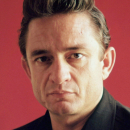
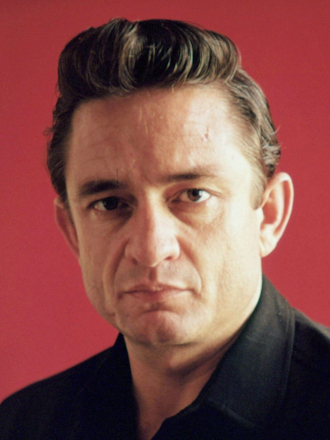
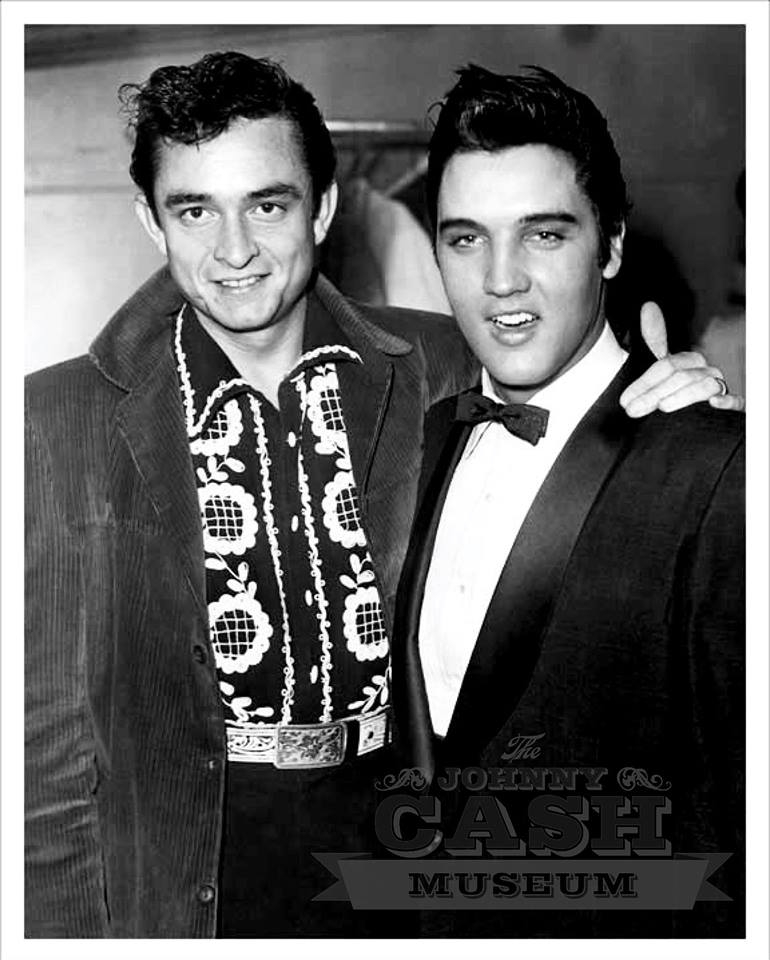
 Amanda S. Stevenson
Amanda S. Stevenson 